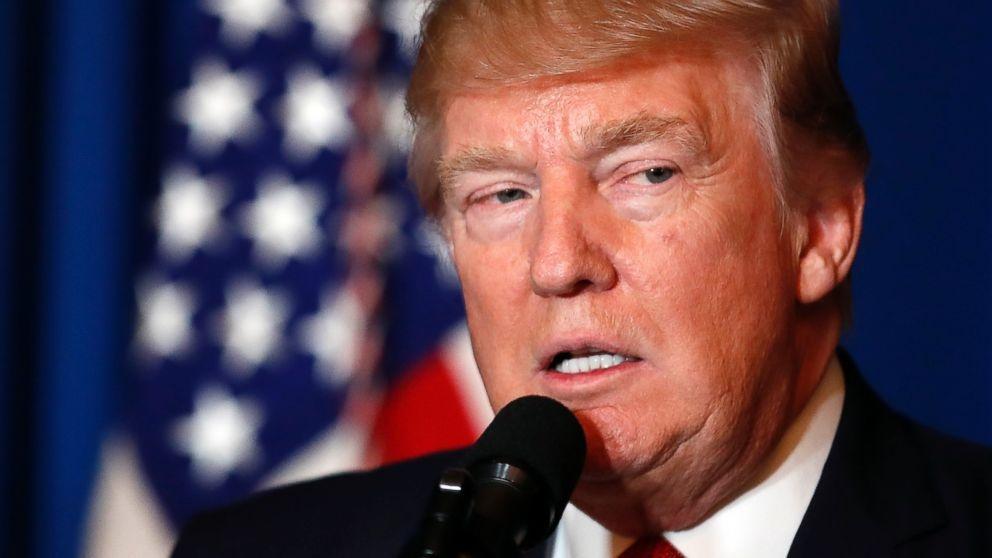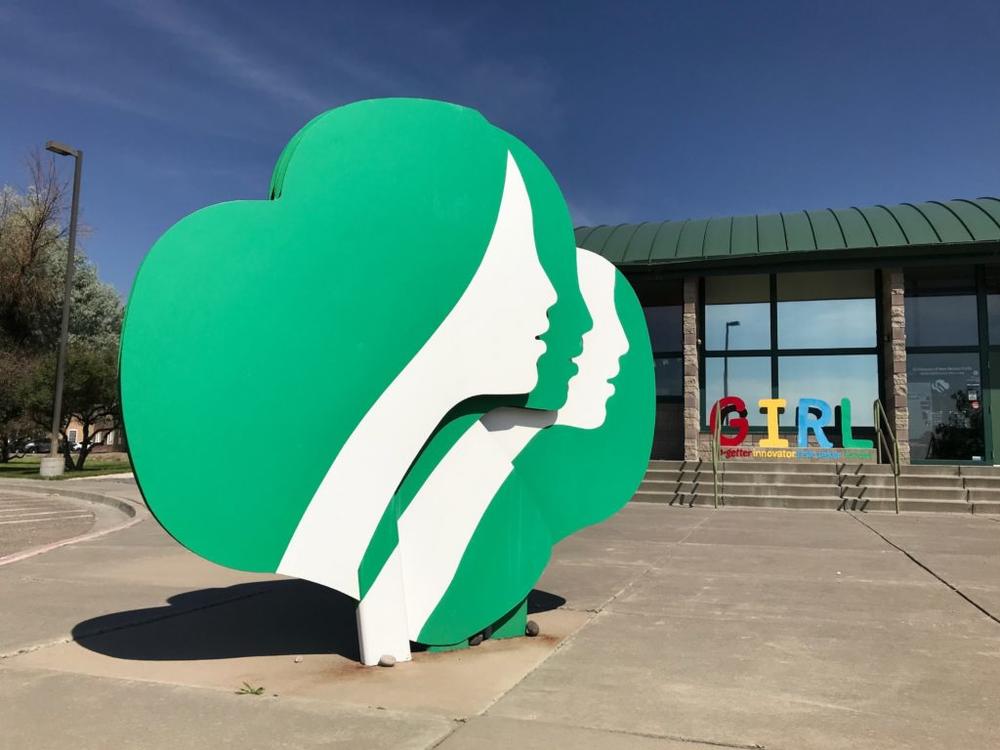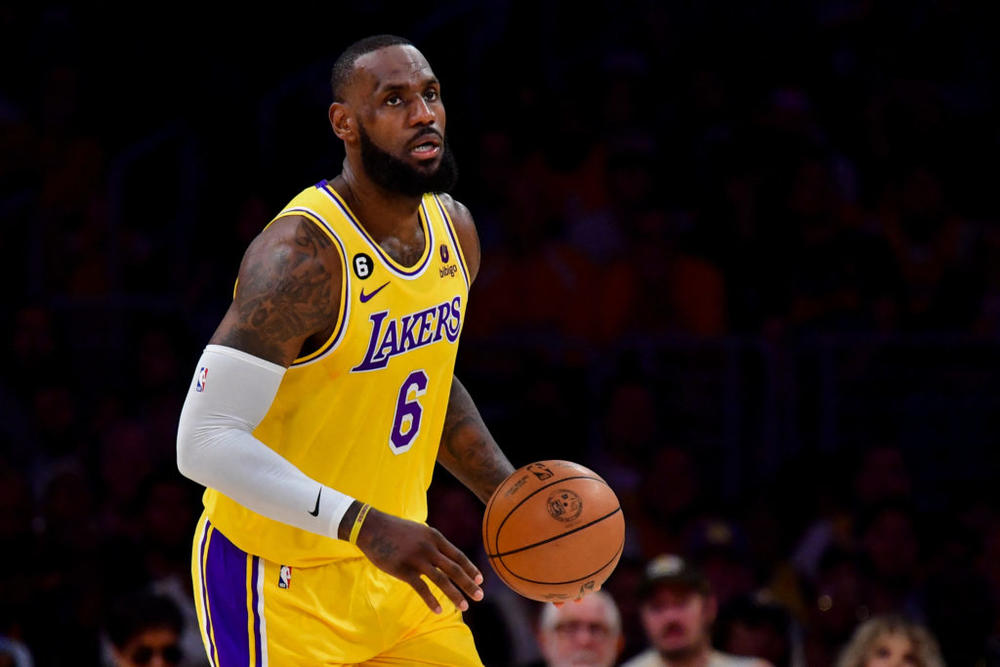
Section Branding
Header Content
Georgia Today: Presidential candidates visit GA; Girl Scout troop works with CDC; Lebron James book
Primary Content
On the Monday, March 11 edition of Georgia Today: President Joe Biden and former President Donald Trump visit Georgia to make their final pitches to voters ahead of tomorrow's presidential primary; a group of Atlanta-area Girl Scouts is being recognized for their work in public health education; and a new book looks at the power, passion and politics of basketball legend LeBron James.

Peter Biello: Welcome to the Georgia Today podcast from GPB News. Today is Monday, March 11. I'm Peter Biello. On today's episode, President Joe Biden and former President Donald Trump visit Georgia to make their final pitches to voters ahead of tomorrow's presidential primary. A group of Atlanta area Girl Scouts is being recognized for their work in public health education, and a new book takes a look at the power, passion, and politics of basketball legend LeBron James. These stories and more are coming up on this edition of Georgia Today.

Story 1:
Peter Biello: Primary election day in Georgia is tomorrow. And this past weekend, both President Joe Biden and former President Donald Trump visited Georgia to make their final pitches. At a rally in Atlanta. Biden thanked voters for helping him win the state in 2020.
Joe Biden: Three years ago, you helped the Democratic ticket and won Georgia a presidential election for the first time in 30 years. On Thursday, while I gave my state of the Union address, I've talked about how far we've come since the 2020 election.
Peter Biello: He highlighted declining unemployment rates and caps on prescription drug prices as successes of his administration. Biden faces a likely rematch against former President Donald Trump this November. Trump held his own rally in Rome at the same time as Biden's rally.
Donald Trump: With your vote, we are going to win the state of Georgia in an epic landslide.
Peter Biello: Trump focused on immigration in his speech and promised to do more to prevent migrants from entering the country illegally. Both candidates see Georgia as a key battleground state for this year's election. The secretary of state's office says about 440,000 people cast ballots during the early voting period that ended on Friday. Polls will be open tomorrow from 7 a.m. to 7 p.m.
Story 2:
Peter Biello: The state House has passed a bill to increase penalties for false reports that send police to the homes or offices of targeted victims. Representatives overwhelmingly approved the measure, cracking down on the crime called "swatting." Duluth's state representative, Republican Matt Reeves, said incidents of swatting calls have been on the rise.
Matt Reeves: This is something that's been going on around the country. I believe there was a false emergency report one day at the Capitol as well. This bill criminalizes swatting, and it will keep not only members of the public safe, but more importantly, it'll keep our members of law enforcement safe.
Peter Biello: During the last three months, four state senators, Lt. Gov. Burt Jones and Rome congresswoman Marjorie Taylor Greene have been targeted by swatting calls. The Senate already has approved the bill, but since the House added a measure to it addressing drive by shootings, it returns to the Senate for more debate.
Story 3:
Peter Biello: Georgia House Minority Leader, Democrat James Beverly, says he will not run for reelection. He's represented parts of Bibb County in the House for 14 years. The optometrist from Baltimore was first voted into office in 2011. We need defeated Macon Democrat Anissa Jones in a state House race. With state Senate Minority Leader Gloria Butler also not running for reelection, there will be new leadership in both chambers' Democratic caucuses.

Story 4:
Peter Biello: A group of Atlanta-area Girl Scouts is being recognized for its work in public health education. GPB's Ellen Eldridge reports, they earned one of the organization's highest honors.
Ellen Eldridge: The high school sophomores developed a website in partnership with the centers for Disease Control and Prevention, focusing on six areas of health. Girl Scouts that go through the site's training can earn a so-called "fun patch." Lily Crick is with the Girl Scout Troop 14567 in Tucker. She says her subject areas involved writing about bullying and sexual health.
Lily Crick: We wanted to make it interesting and fun, but also teaching them the importance of bullying and why it's not okay. That was definitely really hard to try to connect to younger kids and everything without them being like, "oh my gosh, this is so lame."
Ellen Eldridge: The group presented a fun patch to Dr. Mandy Cohen, the director of the CDC, who is prioritizing mental health among teenagers. For GPB News, I'm Ellen Eldridge.
Story 5:
Peter Biello: The cost of cleaning up a fiery train derailment in Ohio is falling solely on Atlanta-based Norfolk Southern. That's the ruling from a federal judge who rebuffed the company's claim that other companies should share the cost. Norfolk Southern had argued that chemical company Oxy Vinyls and railcar owner GATX should share the responsibility, but the judge ruled that Norfolk Southern didn't show those companies could have stopped the derailment. He also added that spreading blame could delay the resolution of the lawsuit. Norfolk Southern has said that cleaning up has cost more than $1 billion so far, and that cost continues to climb. EPA officials have said they expect the cleanup to be finished later this year.
Story 6:
Peter Biello: The University of Georgia has named the founding dean for its School of Medicine. UGA announced today that Dr. Shelley Nuss, who has served as the dean of the Augusta University and UGA medical partnership since 2016, will head up the new school. Lawmakers and the Board of Regents moved swiftly last month to approve and fund the school, which promises to address Georgia's doctor shortage and expand UGA's economic impact across the state. It's the second public medical school in Georgia, joining the Medical College of Georgia at Augusta University.

Story 7:
Peter Biello: LeBron James is arguably the greatest basketball player to ever play the game. Some argue even better than Michael Jordan. But James brought more than tremendous skill to the court. He brought black culture, and in doing so, turned the game into a showcase for it. In her new book, The Book of James: The Power, Politics, and Passion of LeBron, Emory University professor Valerie Babb illuminates the many ways James proudly displayed black culture, pushed for social and political change, and invested in children who, like him, grew up in poor, unstable homes. Valerie Babb.
Valerie Babb: Hello, Peter. It's my pleasure to be here.
Peter Biello: So this book, I really enjoyed it. It offers two things simultaneously. It offers a look at LeBron's rise to prominence, and also the way white America perceived him, and the racist tropes that he encountered along the way. Can you tell us a little bit, first about how he grew up.
Valerie Babb: Some of the more important and moving details that affect him as an adult emerge then. Everybody knows he grew up very poor in Akron, Ohio, with a single mother. But he has just transformed that pretty traditional narrative to highlight how that really does represent overcoming in its best sense. He, as a child of a single mother, has gone out of his way to emphasize that that is a family. He completely takes it out of the way we want to frame that. He reframes impoverishment not as something that is permanent, but as something that one can, with some luck, with some help —something that he will provide to future generations — get out of and make their own way. So whatever his circumstances were growing up, he has completely transformed them to make them work not just for him, his family, but for a larger segment of Ohio and American society as well.
Peter Biello: One of the first examples of him being targeted in a way for his talent, but also his family being targeted — you mentioned family being an important thing for him — was when he was in high school. His mother borrowed against his future NBA earnings to buy him a Hummer. I mean, even in high school, everybody could see that he was destined to be this huge sensation in the NBA. And so he had this remarkable capital built up waiting to be utilized. And so his mother drew on that to reward him with a Hummer. And this drew him — basically, a target on his back in a variety of ways. Could you talk a little bit about what happened?
Valerie Babb: So she did do something that any mother of a prominent future star probably would have done, but because she was Black and poor, because he was Black and poor, because they fell outside the standard two-parent household, they became a lesson, if you will, and what not to do to become a decent member of society. So he took a lot of heat for representing something that was actually in people's imagination, that had nothing to do with his own reality.
Peter Biello: The real world consequences was that he allegedly ran afoul of a rule where you couldn't accept gifts, and they were like, "How did you get this Hummer?" And they were questioning his ability to play because of this gift. And then they —and so his mother had to sort of show all the paperwork, I guess.
Valerie Babb: Yes. Reporters had said that she underwent the kind of scrutiny of the IRS reserves for billionaires with offshore accounts just because she bought her son that car based on his future earnings.
Peter Biello: Yeah. And even though it was determined later that it was totally fine —
Valerie Babb: Completely! Correct.
Peter Biello: People were still saying, "Well, she should have known that the scrutiny would have happened even if it was above board."
Valerie Babb: Right, right. And I think that shows us the expectations that are placed on people like LeBron James and his mother — people who are Black and people who are poor. The rules for them are just different somehow.
Peter Biello: Right, right. And one of the points in this book that still is ringing in my head is that he was getting criticized for accepting a multimillion dollar contract right — right outside of high school. And people were like, "How could he do that? How could he do that? Because he's forgoing his education." But I can't say I've ever heard that once about anyone joining a minor league baseball team for, what, $20,000?
Valerie Babb: Minor league baseball? Hockey? Yes. Exactly. Right. So what is it that is causing that criticism? And it's race. It is his Blackness. Absolutely. And that has been part of a long-running narrative. I was a professor at Georgetown University before coming to Emory, and the basketball team there faced that narrative as well. "Oh, you're going to leave this chance — it's a great education — to go do this," and also ignoring many of the younger people who would leave Georgetown to go work in their parent's corporation, for example, and decide, okay, we'll come back a little bit later and get that. So again, we see racial expectations kind of un-leveling the playing field, if I may.
Peter Biello: Some of his protests are quite explicit. He is wearing shirts that say "I can't breathe." And various other examples to that level. Could you talk about the significance of him doing something like that?
Valerie Babb: I think increasingly we live in a visual culture where we understand things through what we see. And one of the things we see so frequently are stars, are celebrities. And LeBron James realizes that and is very aware of how that projection can then be used to influence attitudes, values and assumptions. So rather than be concerned about his professional career, he has used his fame and prominence to register voters, to argue for women's rights and inclusion, to argue for protocols to help NFL players with concussions, to argue for essentially what we're fighting for right now: democracy, voting and a fairer society.
Peter Biello: So LeBron's playing days are nearing their end. I'm wondering what you think his post-playing career will be like when it comes to his activism and his philanthropy, when once he — once he can do that full time. What do you think it's going to look like?
Valerie Babb: I am trying to imagine that myself, mainly because he's kind of accomplished all of that already. So part of me would say, "oh, well, maybe because he's so passionate about education, he'll go into the field of education and see what he can improve there." He's already done that. "Well, maybe in terms of economics, he will assist other Black businesses and other Black creators to get to the area and the field of making money that he did." He's already done that. So he has already accomplished off-the-court things that I don't think anyone would have expected him to accomplish. The last thing I want to add to that, too, is also just the way he’s influenced art and style. I don't know of a more fashionable athlete than LeBron James. I don't know of an athlete that has collected interesting pieces of art the way he has. And the way he has, for example, built a relationship with the African American Memorial Museum of the Smithsonian museums, assures me that I think he's going to be a real cultural influencer. He's very much aware about how celebrity influences how we understand our world, and I think his efforts are going to go towards those things that will help us to do that better, whether that is in creating school materials, whether that is creating media of all kinds, oral, visual, all that depends. And that's why I think my next book would want to be to dive into that part of his brain.
Peter Biello: Emory University professor Valerie Babb, thank you so much for talking with me about your book. Really appreciate it.
Valerie Babb: This has been such a pleasure, Peter. Thank you.
Peter Biello: The book is The Book of James: The Power, Politics and Passion of LeBron. And you can find a video of my full conversation with Valerie Babb at our website, GPB.org/news.
Story 8:
Peter Biello: In sports. Atlanta United prevailed in their home opener this weekend against the New England Revolution. Final score 4 to 1. Yorgos Giakoumakis scored three goals in a 19 minute stretch of the second half. Giakoumakis scored on a penalty kick in the 55th minute, added a beautiful header at 66 minutes, and finished the hat trick with a left-footed shot from a sharp angle at the left side of the box in the 74th minute. In spring training baseball, the Atlanta Braves have optioned top prospect A.J. Smith-Shawver to Triple-A Gwinnett. This comes after he gave up seven hits and four earned runs in three innings yesterday against the New York Yankees. But we may see him in the big leagues again. Last season, Smith-Shawver went 1-0 with a 4.22 ERA in six Atlanta appearances, including five starts. He will likely be one of the top options to return to the majors if a pitcher is injured, or the Braves need an extra starter this season. The Braves are still considering Bryce Elder and Reynaldo Lopez for the fifth spot in the starting rotation. And in the NBA. The New Orleans Pelicans beat the Atlanta Hawks 116 to 103 yesterday to snap the Hawks' three-game winning streak. Bogdan Bogdanovic led the Hawks with 25 points. John Murray finished with 23 points and 11 assists, one game after tying a career high with 41 points.
Peter Biello: And that is it for this edition of Georgia Today. Thank you so much for tuning in. If you want to learn more about any of these stories, visit GPB.org/news. And if you haven't yet, subscribe to this podcast, take a moment and do it now. It'll keep us current in your podcast feed. If you've got feedback or a story idea, we would love to hear from you. Send us an email. The address is GeorgiaToday@GPB.org. I'm Peter Biello. Thanks again for listening. We'll see you tomorrow.
---
For more on these stories and more, go to GPB.org/news



